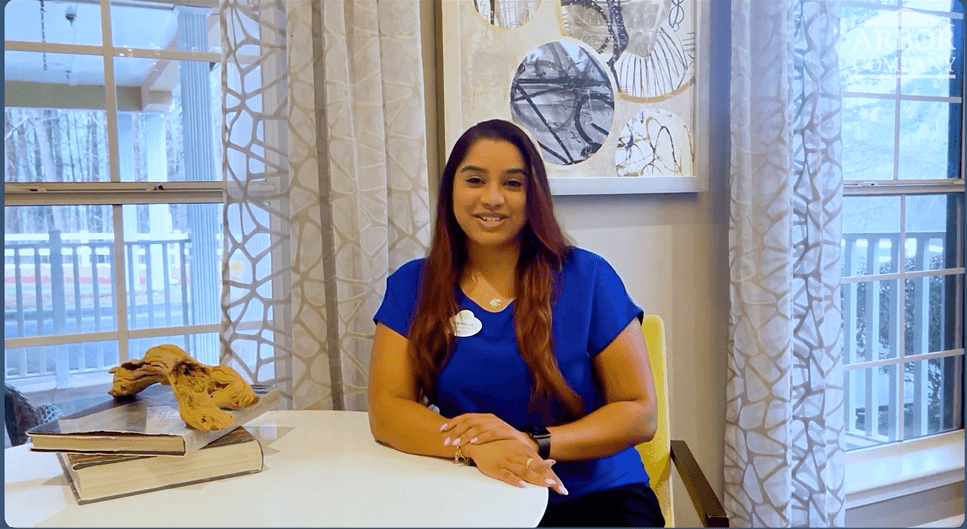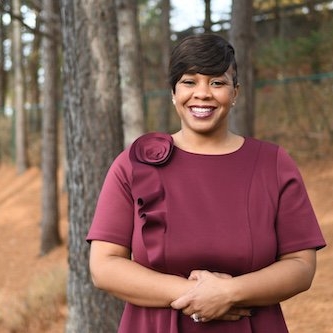
The transition to dementia care can help seniors with dementia live happier, higher-quality lives filled with delicious food, meaningful friendship, and plenty of activities. Yet many seniors are reluctant to move. The people who love them most may worry that they are betraying them by moving them to dementia care, or that they may feel abandoned.
These 21 tips can help you plan for the transition, talk to your loved one, and help them manage the challenges of moving to a dementia care facility near Atlanta.
Deciding It’s Time for Dementia Care
If you’re debating whether it’s time to transition your loved one, these tips can help:
- Know that it often takes time to transition to dementia care. Some communities have long waiting lists, so plan early.
- Get your financial ducks in a row. Make a budget, and if your loved one needs to apply for Medicaid, do so as early as possible.
- Understand warning signs that may mean it’s time for dementia care. If your loved one cannot cook, bathe, or be alone, they may need dementia care.
- Recognize the signs of caregiver burnout. If you are struggling to care for your loved one, dementia care may be the solution.
- Get buy-in from as many family members as possible. Talk to one another about your goals and plans so that you can present a united front.
- Consider getting help from a geriatric care coordinator or social worker, especially if there is family conflict over the transition to dementia care.
- Many seniors want to age in place. Many family members are strongly tied to the idea that elders must remain at home. This can cloud their judgment. Research shows that seniors are actually happier in senior living communities. Particularly when dementia is moderate to severe, dementia care offers a higher standard of care than most caregivers can provide at home.
Understanding Dementia
Transitioning to dementia care can be an emotional decision that opens old wounds and triggers new resentments. Remembering a few simple facts about dementia can help make the process easier:
- Seniors with dementia have poor executive functioning and even worse short-term memory. This means they often make terrible decisions, and may want things that are either impossible or unsafe.
- What your loved one wants right now might not be an accurate reflection of what they would want if they had all of their cognitive abilities.
- Dementia affects personality and mental health, not just memory. If your loved one is angry, aggressive, or rejecting, this may be due to dementia.
- Dementia is a progressive disorder, which means it will steadily get worse. Acting early ensures your loved one can get the care they need as the disease progresses.
- An accurate dementia diagnosis from a neurologist may help you access appropriate care. Work with a trusted doctor.
- Ongoing evaluation from a trusted clinician can help you monitor your loved one’s health and the progression of their dementia.
- Some types of dementia affect communication. Primary progressive aphasia, for example, may rob your loved one of their ability to talk. This can make it more difficult to discuss senior care, so have the discussion as early as possible. If necessary, consider working with an expert to establish effective ways of communicating with your loved one.
Starting the Conversation
Talking to your loved one about dementia care can be difficult, especially if they struggle with communication. The following tips make it a little easier:
- Don’t attack your loved one. They shouldn’t feel judged or belittled.
- Talk about the disease as separate from your loved one. “The disease makes it difficult for you to cook” is easier to hear than “You can’t cook.”
- Present the positive aspects of transitioning, such as no longer being bored and having access to more friends.
- Ask your loved one what you can do to make the transition easier.
- Understand that the disease may have compromised your loved one’s abilities to the point that they can no longer recognize their own limitations.
Making the Move
Transitions are difficult, even when they produce great outcomes. So be prepared for a bumpy transition. Some things that can help include:
- Pack for your loved one, and do all of the planning on their behalf. The disease has likely made it impossible for them to manage packing, getting rid of their things, or knowing what to take.
- Help your loved one set up their new home, and ensure there are some comfort objects visible and accessible. Visit them often in the early days, to help ease the transition and assure them that they have not been abandoned.
How Arbor Terrace at Cascade Can Help
Arbor Terrace at Cascade offers comprehensive dementia care to Atlanta seniors. Our program includes luxury living, delicious meals, support for daily needs, and activities that will keep your loved one’s mind and body active. Life with dementia can be difficult, but dementia does not have to erode quality of life. We help people find meaning, purpose, and a sense of belonging even when dementia tries to take it away. Give us a call or stop by for a visit today.



